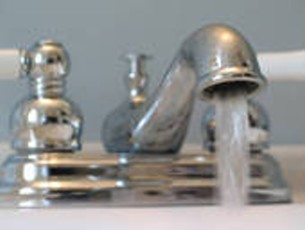ATHENS - As temperatures rise across Northeast Georgia, water system managers are hoping to head off an annual phenomenon that can turn perfectly good tap water murky, dark and smelly.
It's called a thermal inversion, and it's a problem that strikes smaller water systems during the spring and fall when daytime temperatures and nighttime temperatures tend to vary wildly.
Shallow reservoirs are exceptionally vulnerable when daytime temperatures are much higher than nighttime temperatures. With a reservoir 4 to 8 feet deep, a 90-degree day can heat up all the water in the reservoir. At night, when the surface of the water cools down, the buoyant, warm water on the bottom rises to the top - carrying murky silt and algae that sometimes can make its way into the water pipes.
During one week last year, the problem was the worst that most water system managers had ever seen.
"Every time I came back to my office there was another stack of phone messages on my desk," said Bryan Harbin, director of the Commerce Water and Sewer Department.
"If it starts up like it did last year, well ... I just hope it doesn't," said Tim Powell, director Statham of public works.
In Statham, where the reservoir is only 4 feet deep, the problem got bad enough that the city has stopped using its own water and pumped in water from the Barrow County Water Authority because the reservoir water was full of silt, Powell said.
"There's nothing you can do to get ready for it," Harbin told a group of high school students as they asked why their tap water went brackish last spring. "You can't tell people, 'In a few days this going to happen, so we need to do this.' It just happens."
Water department officials can treat the water with different chemicals to try to mitigate the discoloration and odd taste, but they don't know when an inversion is going to happen and the chemicals (algaecide and carbon powder) are too expensive to use all the time.
Commerce, Statham and other small water systems hope to avert the problem this year with a new approach - they installed solar-powered aerators to keep the water mixed up and prevent the annual turnover caused by inversions.
The Statham City Council plans to vote Tuesday whether to seek a low-interest loan for about $555,000 to buy three of the aerators.
While payments of $55,000 a year sound steep to stir a reservoir, the aerators will drastically cut down on money the city spends on chemicals and buying water from Barrow County, Powell told council members at work session Thursday.
The city of Commerce installed three aerators late last autumn.
The city of Jefferson has two aerators in its Curry Creek Reservoir for the past three years to help control algae. They've cut chemical costs by 50 percent to 75 percent, according to Jeff Killip, public works director.
---
Tuesday
October 8th, 2024
8:31PM









